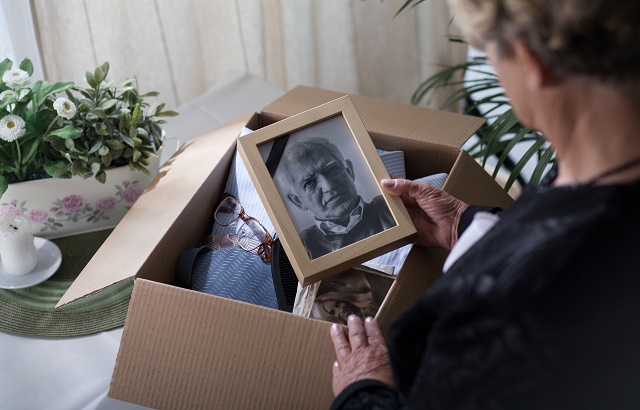Women who lose their husbands could face a significant fall in their standards of living in retirement, warns consultancy firm LCP.
This is largely due to changes to the UK state pension system in 2016 and private pension trends, coupled with women having, on average, a smaller pension pot than men.
Before the state pension revisions, women could get pensions based on the contributions of a husband, ex-husband or late husband.
These provisions were largely scrapped in 2016 as the amended system focused on ensuring that everyone could secure a “decent state pension in their own right”, LCP said. This lead to women receiving higher state pensions as a result.
But under such rules, when a husband dies, his wife will generally inherit “little or nothing of his state pension”, the consultancy firm said.
This creates a higher risk of lower retirement living standards for widows, as under the old rules they would have been able to enhance their pots.
Widowers face similar shortfalls, but they usually tend to haver larger pensions of their own to support them after a bereavement.
Bigger shortfall
Additionally, in the next few years, fewer people will reach retirement with substantial final salary pensions.
These often provided a generous widow’s pensions after her husband died, LCP said.
But the current provisions are increasingly in the form of ‘pot of money’ or defined contribution (DC) schemes where there is no ongoing pension.
Even if the widow were able to inherit any balance left in her husband’s pot, should he die later in retirement the pension is likely to have been “run down to a low level”.
LCP analysed the position of a couple under the old and current systems and found that pre-2016, a widow’s living standards would have fallen 9% compared with 24% under the current rules.
Steve Webb, partner at LCP, said: “Coping with bereavement is hard enough, but coping with a sharp fall in living standards thereafter is even tougher. Although the new state pension generally pays more to women in their own right at retirement than the old system, it has very limited provision for widows and widowers.
“Newly retired couples and those coming up to retirement need to find out where they would stand with state and private pensions if one of them were to die and to explore making additional provision to cushion the financial impact of bereavement.”
Protection
But how can people mitigate such risks?
Phil Billingham, financial planner at Perceptive Planning, said that they should try to calculate how long their retirement funds may need to last and think about what financial products could be most suitable for a surviving spouse.
He said: “In financial planning, we remind a newly retired couple that there is at least an even chance of one of them living well into their 90s. On that basis, it is prudent for a couple to treat all wealth and assets as family assets in retirement and where there is the choice to buy an annuity, a joint life annuity should be the default option.
“Whilst a single life annuity will be the cheapest option, and is usually the first quote you are shown, it does not secure an income for your spouse after you are gone.
“Given the risk of an income shock, a relatively cheap option would be to take out a level term assurance policy. For a non-smoking male aged 60, cover of £100,000 ($136,552, €115,901) would cost just a pound a day and could be money well spent to provide peace of mind.”
Darren Cooke, financial planner at Red Circle Financial Planning, added that couples should see how their income could change if one partner was to die, and that using the wealth tied up in the family home could fill the shortfall in income.
“This is one of those situations where forewarned is forearmed. Just being aware of the change in income if one partner dies allows the couple to plan for it and consider how the widow(er) could cope.
“In early retirement the couple need to be careful of taking on debt, as even small interest payments could be a big part of a reduced income. Also, be careful of spending down savings too quickly as they may be better spent to support the survivor once the income drops. There is also a need to have a conversation with the wider family, to make them aware that if one person dies the survivor is going to have a significant reduction in income and find out if the family could help out.
“Finally, they could consider the option of equity release, now or after the death, to release funds from the property that could be used to supplement income.”
Tax implications
Personal financial expert Clair Walsh said that in times of bereavement people should not make rash decisions.
“For example, many people automatically apply to take inherited personal pensions as a lump sum, but it might make more sense to transfer this to a pension in your name and draw from this to provide an on-going income,” she said.
“Both options are generally tax free if the deceased was under 75. If the deceased was over 75, the inheriting spouse will pay income tax on the pension, so taking it all in one tax year you could lose much more to tax than by spreading it across multiple tax years.
“Furthermore, by keeping it in pension, the money can remain invested and benefit from tax-free growth. As pensions sit outside of estates, if you have other investments or cash savings, it may make more sense to draw from these first and leave the pension which could be inherited by future generations.”








